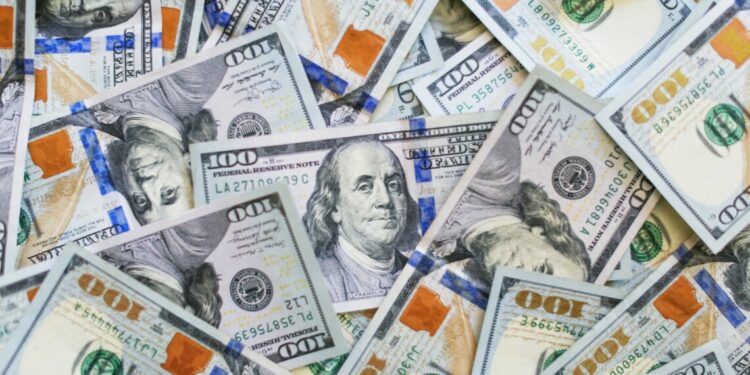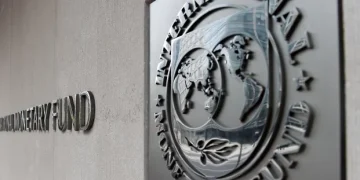Nigeria’s external reserve fall by $2.9 billion in H1 2023; the most in 6 years
Nigeria’s external reserve has fallen by about $2.8 billion in the first half of 2023 as Nigeria continues to struggle with weak crude oil output and a lack of foreign investor participation in the capital market.
The external reserves opened the year at about $37 billion but have now dropped to about $34.1 billion as of June 2023. Nigeria’s external reserve is an important barometer for valuing the country’s currency. It is also used to estimate how many months of imports it can finance.
The external reserve has also dropped by almost one billion dollars since the Tinubu administration came into power on May 29th, 2023. The external reserve has gone from $35 billion as of May 30th to $34.1 billion. This is despite the unification of the naira and the introduction of a managed exchange rate float.
A cursory review of the data shows this is the largest half-year drop since 2015 when the external reserves went from $34.4 billion at the end of the year to $28.1 billion by the end of the first 6 months of June 2015.
The country’s external reserves have been on a downward trajectory since this year due to a lack of foreign investor inflows, lower crude oil outputs, and a fragmented forex market. The external reserve is typically funded from a combination of the sale of crude oil proceeds, external debts, and foreign investor inflows.
Nigeria’s central bank has also blamed the decline in reserves lack of external debt financing. Nigeria is unlikely to tap the foreign debt market this year due to higher global interest rates, especially for emerging market Eurobonds.
CBN MPC shows concern
The central bank showed concerns about the lower external at the last monetary policy committee meeting stating that it needed a build-up.
“The MPC observed that the economy continued to be weighed down by high import bills, leading to pressure on foreign exchange and resultant increase in the general price level. The Committee noted that the economy needs to build up the stock of foreign reserves to act as buffers against shocks. In addition, the current trend in price development would continue to be monitored by the Bank with greater collaboration with the fiscal authority, to address the drivers of inflation.”
It also blamed the drop on transactions in the forex market.
“The Committee, also, noted the moderate decline in the level of gross external reserves to US$34.91 billion in April 2023, from US$35.14 billion at end-March 2023, attributable to transactions in the foreign exchange market and largely to miniscule accretion to reserves from crude oil exports.”
The latest changes in the forex market are also yet to lead to an inflow of foreign investor capital as investors continue to show concern over the rising inflation rate and the need for interest rates to rise.
What they are saying
Experts argue that the decrease in foreign reserves should not come as a surprise, considering Nigeria’s involvement in several costly projects over the past six months. One such project was the allocation of a N400 billion budget for the 2023 elections.
Additionally, the government had earmarked a $1.8 billion budget for a long-awaited census exercise, which was eventually suspended.
Furthermore, the expenses associated with printing new naira notes for the extended naira redesign policy have placed a strain on the country’s foreign reserves, according to economists interviewed by Nairametrics.
Dr. Ayo Teriba, the CEO of Economic Associates, highlights the usual air of uncertainty that prevails during election years, often leading to a reversal in the flow of investments into the country. He also emphasizes that the recent policy changes, such as the removal of the exchange rate subsidy and fuel subsidy, have created uncertainty, causing the markets to respond with a time lag.
Dr. Kayode Johnson, an economic affairs analyst, points out that Nigeria is currently generating less revenue than it requires. He asserts that the federal government’s ability to finance initiatives like elections, census activities, and currency exchange can only be achieved through borrowing or tapping into the country’s foreign reserves. This situation highlights Nigeria’s financial challenges and the need for careful economic planning.
Dr. Uche Gemba, another economic affairs analyst, adds that apart from the exit of foreign portfolio investors (FPIs), other factors contributing to the decline in external reserves include coupon payments on Nigeria’s sovereign Eurobonds, debt service costs, and a potential increase in the Central Bank of Nigeria’s interventions across various windows.
The dwindling foreign reserves in Nigeria raise concerns about the country’s economic stability and its ability to meet its financial obligations in the face of mounting expenses. Efforts to attract investment, boost revenue generation, and manage expenditures will be crucial for Nigeria to regain control over its foreign reserves and ensure long-term economic growth and stability.








